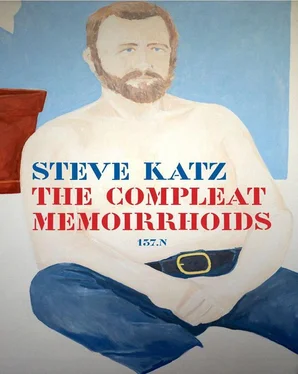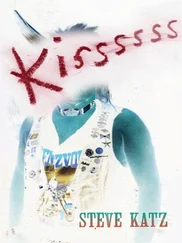Everyone does as he says. I am constipated both creatively and physically. I bumble out a few creaky lines of nothing interesting. We go ahead and read it anyway. My release in the communal bathroom, no stalls or compartments, is more impressive. There’s no seat, no pedestal. You squat and aim for a hole in the concrete floor. The five days of shit explodes out of me as if launched by a rocket. It hits the wall with enough force I think to shatter the tiles. Everyone in the bathroom pays attention and they seem about to applaud. If only I could have expelled my poem with such force.
The options on the trains are soft sleeper, hard sleeper, and hard bench. We choose hard sleeper on the way to Hangzhou. The compartments have no doors. It’s a series of niches, six bunks in each niche, with uppers that fold down off the wall. Each passenger gets a blanket and a pillow.
A pair of thugs that were secreted from some dark alley in Shanghai, pass through the corridor and make nasty comments about everyone sitting in the seats. Passengers carry mugs and pouches of tea when they travel. A steward passes through periodically with a kettle of scalding water and fills their mugs. Aromas of the teas permeate the car. With hands warming around the brew, travelers take comfort. The thugs come back, cigarettes dangling from lips as if they learned their tough look from some American movie. They are bony little punks, their greasy hair slicked back. They wear colorful wide ties over dark shirts. Their jeans are rumpled and soiled. One of them drops his cigarette and grinds the ember with his torn faux Keds sneaker. “You two,” he says to a timid peasant couple on the way home to Harbin. “You get up. We’ll sit there.” The couple obeys meekly, without a question. They look frightened. Patriotic music blasts over the speakers. No one protests. The punks roll cigarettes and light up again after they sit down. Their tobacco smells like smoldering horse shit. Rafael and I get up and move away. We want to do something but don’t know what to do except stand in the aisle and send nasty looks at the pair. “Take it easy. When we get off you people can sit down again,” says one of them. They smoke their cigarettes, and in an hour, a few stops before Shanghai, they leave, and we all sit down again and smile at each other wanly.
A handsome fellow across from us, who looks a bit like Chou-En Lai, speaks as if he’s the chairman of our committee. “China is a big country, with long train rides, so we make friends and entertain each other with stories. Soon Hong Kong will be part of The People’s Republic.” We are traveling in 1986, between the end of the Cultural Revolution and the tightening after the Tien-An-Men square uprising. There is relative freedom. People are itching to talk, especially to strangers. “Our diplomats are skillful and intelligent. Soon they will restore Taiwan to China.” He settles back into his seat, and everyone is silent, until a steward comes through to announce that they have begun serving in the dining car. We’re both hungry, and find our lunch chits and head for the dining car.
It is much less than we’d hoped. Most of the food experiences we’ve had so far have been pretty good. Even the street food has been good. This is way beyond bad. The floor is strewn with scraps from the previous wave of diners. The tables haven’t been wiped down, and are sticky with sauces and spilled food. A beleaguered server brings us lunch boxes that we open and close right away. The contents smell like a heap of clothes about to be laundered. I open the box again. Bits of chickenish stuff is mixed into some grey rice, with maybe some scallions stressed and chopped. I exchange a disgusted look with Rafael. Though we’re hungry neither of us wants to test this food. Suddenly a squad of young men, drunk and noisy, busts into the car and brushes by, bumping against us. They make nasty comments about the “white ghosts,” the foreigners. They stagger around the car and hassle the attendant. They stare at us and point their chopsticks threateningly. When the waiter brings their food, even they complain about it, and shout food insults at us. “Feed this crap to the white ghosts.” We decide to leave without touching our food. “They’re the right age that they probably were Red Guards,” Rafael conjectures. “They got no education. The only thing they ever learned how to do was bully. Most of a generation was rendered into this.”
In the seat across from us an old man with a brush cut looks at us benignly and smiles. He asks if we speak Chinese. As soon as Rafael says he does the old guy leans forward and starts to recite poems by Wang Wei. He even knows some verses in English. “The autumn hills hoard scarlet from the setting sun / Flying birds chase their mates, / Now and then patches of blue sky break clear — / Tonight the evening mists find nowhere to gather.” He recites softly. “I taught Mathematics,” he adds. “During the Cultural Revolution they wouldn’t let me read poetry. They took all my books. I couldn’t speak poems to my students. They wouldn’t let me. They took away my house.” The patriotic one, Chou-En-Lai look-alike, huffs, “You should keep quiet, old man. You don’t have to tell this to these white ghosts.” The old man is compelled to speak. He leans closer. There are tears in his eyes. “They shaved my head and made me sleep in the school. I had no house any more. I slept in the cafeteria on a table. And they shouted questions at me, and humiliated me in front of my students.” He sobs and weeps openly. The other man looks at him with disdain. The old guy leans back, and grows another smile. Venting this way to white ghost strangers is a relief.
On the way back we stay in the same People’s Hotel, this time in a small room with two beds. There is a knock on the door. Rafael asks who it is. A rasping voice responds. Rafael opens the door. His pretty hopeful has come with gifts for both of us. We try to refuse them, but there is no turning her away. She wants Rafael, wants to get out of China, wants to ride to the US on his back. She thinks the covered cup she gives me, and the beautiful tea set she gives Rafael will do the trick. It must have used up an enormous part of her wages. She says something about having a sister already in the US. Her appeal tweaks our male rescue fantasies, her hopes gone haywire in a world without possibilities. There wasn’t room in our luggage for these gifts. We leave them in the room and disappear from her onto the train for Hong Kong. We try to laugh it off on the trip back, and joke about waking in the morning to the sound of that voice. We imitate cruelly its irritating rasp. Neither of us finds it really funny enough to feel okay about laughing.
It was the autumn of our discontent. We were four fictioneers bruised by the slings and arrows of commercial publishing. Each of us had begun to undergo some critical attention, and we were about to assert our importance. We were going to wipe the slate clean, take the bull by the horns, set sail in a new direction. We met at my apartment on Crosby Street in order to unite and facilitate. We were Walter Abish, Clarence Major, Michael Stephens, and myself. In our separate ways, each of us was called to innovation by conviction and necessity. None of us thought he could change the world, but we thought that changing the way it was represented in language might help it heal. We were committed to an attack on the status quo in the art of fiction, to ripping through the masks of realism that paralyzed the face of American imaginative writing. That was my rhetoric, at least at the time.
I made some coffee. We had some cookies. We sat at my round table and agreed we should do something. To do it together was a great idea, but we each sensed a certain uneasiness. It is almost always a novelist’s M.O. to work alone. The need for solitude and silent contemplation is what turns some writers to the novel. I had come up with a name for our quartet — Projects In Innovative Fiction, acronym PIIF. Everyone liked it. We closed the meeting after Walter said he could get our stationery printed very cheaply. We each threw some money into the pot for that. As we separated I’m sure each of us knew that the only project he was committed to was the novel or play, in Michael’s case, he was working on at the time. What would the Projects In Innovative Fiction be? Would we collaborate? Would we do performances? Something would come up. Something was in the air.
Читать дальше












